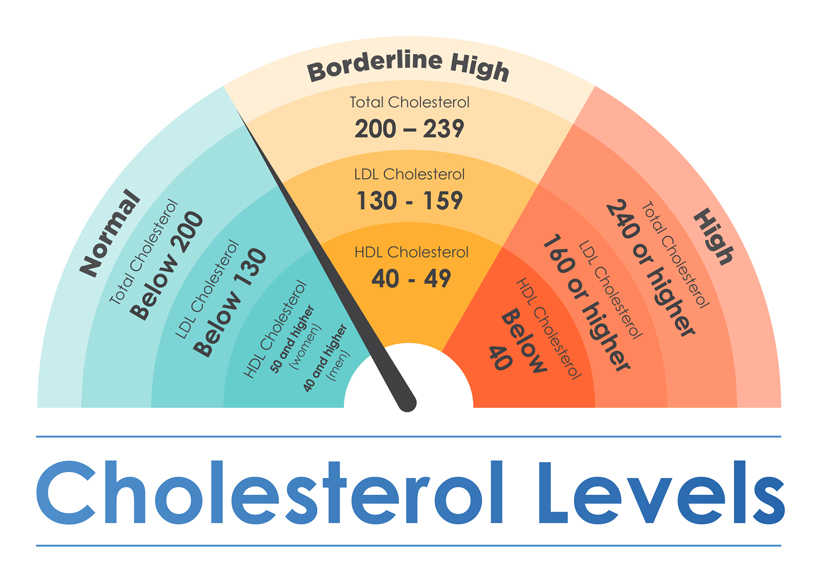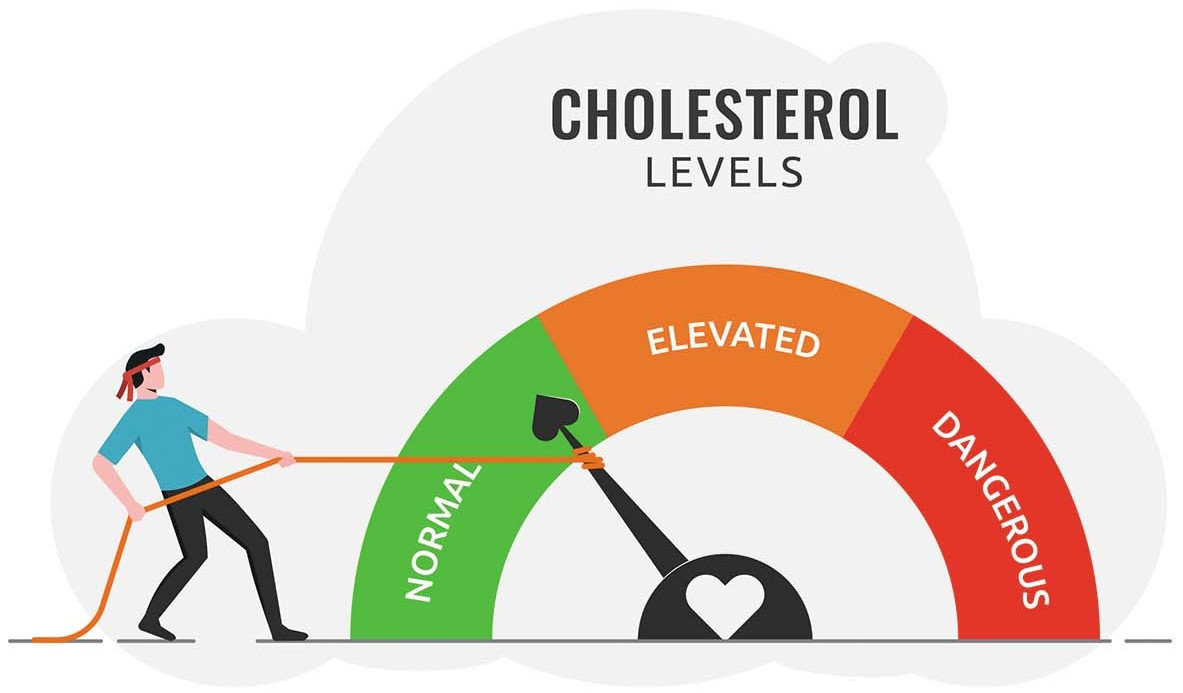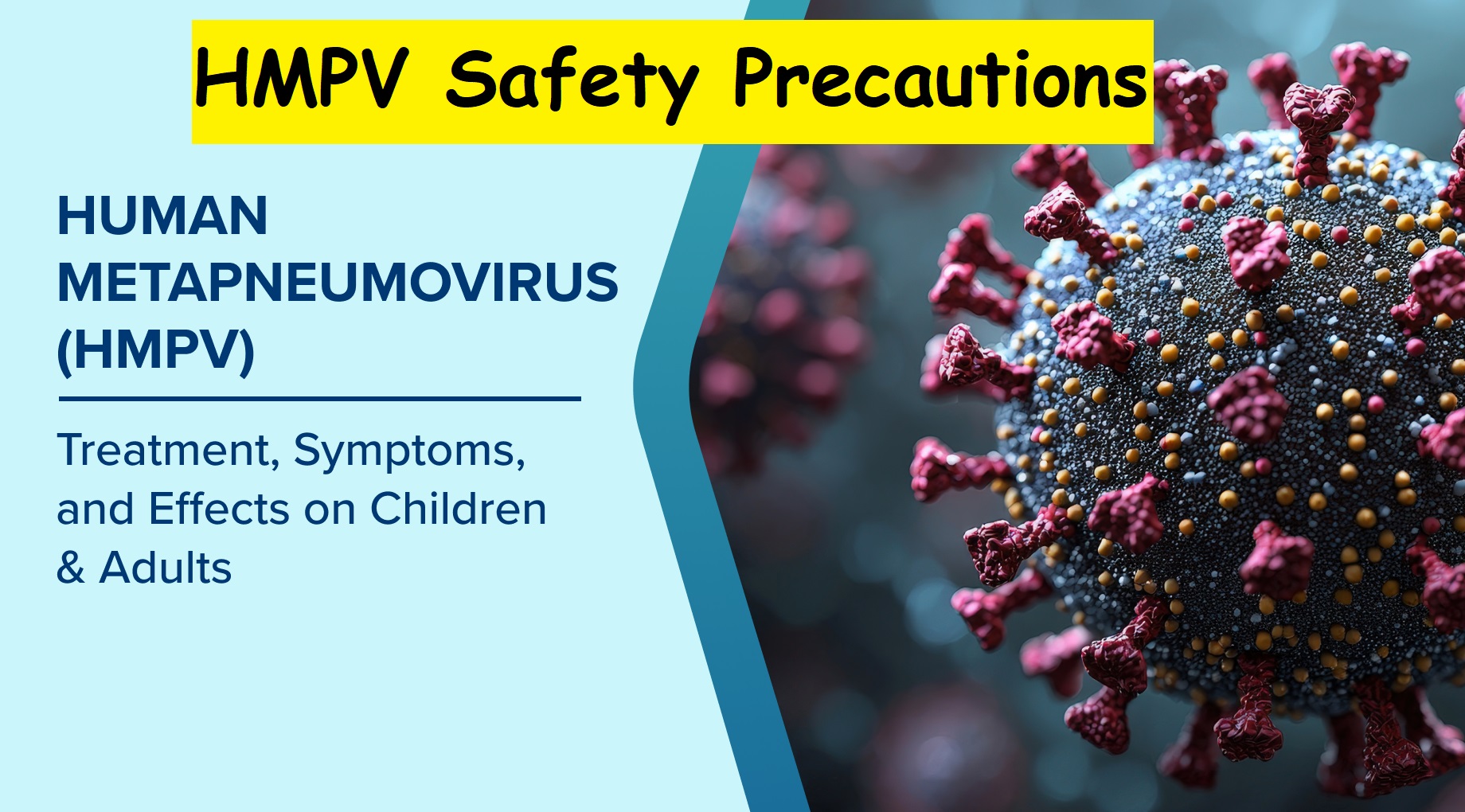Currently, the number of patients with high cholesterol is gradually increasing. It is often referred to as a “silent killer” because excess cholesterol builds up in blood vessels, increasing the risk of heart attack.

Cholesterol enters our body in two ways: it is produced by the liver and obtained through our diet. While cholesterol is a necessary substance for building cells, making vitamins, and producing hormones, increased levels can raise the risk of heart-related problems. High cholesterol can lead to serious issues such as heart disease, stroke, high blood pressure, diabetes, and liver problems.
Symptoms of high cholesterol-related issues may include:
High Blood Pressure: Occurs when blood force against artery walls is too high.
Chest Pain (Angina): Caused by reduced blood flow to the heart.
Heart Attack: Symptoms include chest pain and shortness of breath.
Stroke: Signs include sudden numbness or weakness and confusion.
Xanthomas: Yellow deposits of cholesterol on the skin or around the eyes.
So, how can we maintain balanced cholesterol levels?
Eat healthy foods and limit saturated and trans fats. Consuming foods rich in omega-3 fatty acids is also beneficial. Lowering cholesterol can help keep blood pressure normal and maintain heart health. Foods high in soluble fiber, like kidney beans, oatmeal, apples, and plums, can aid in controlling cholesterol. Additionally, daily exercise can help reduce the risk of various diseases.



